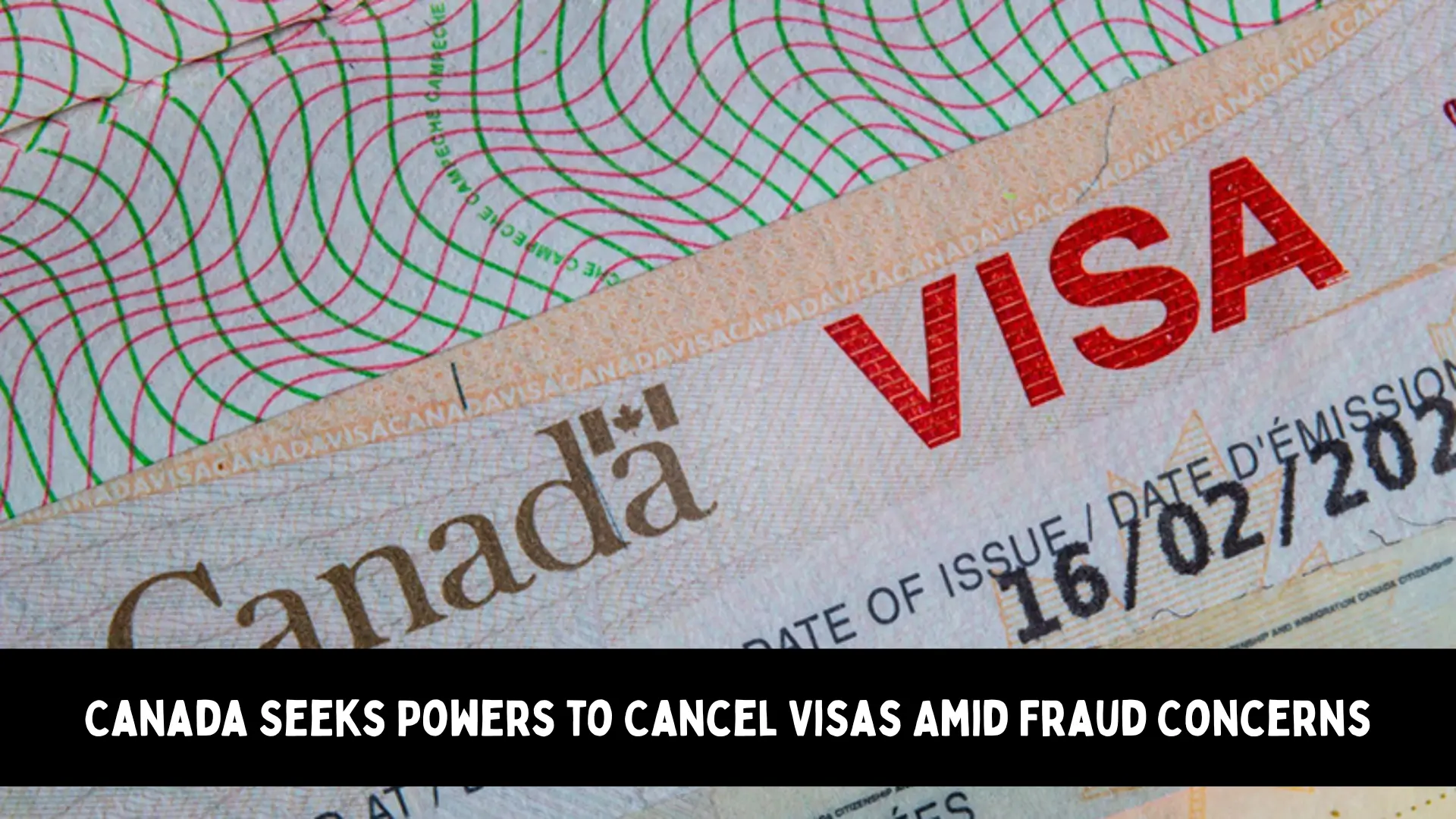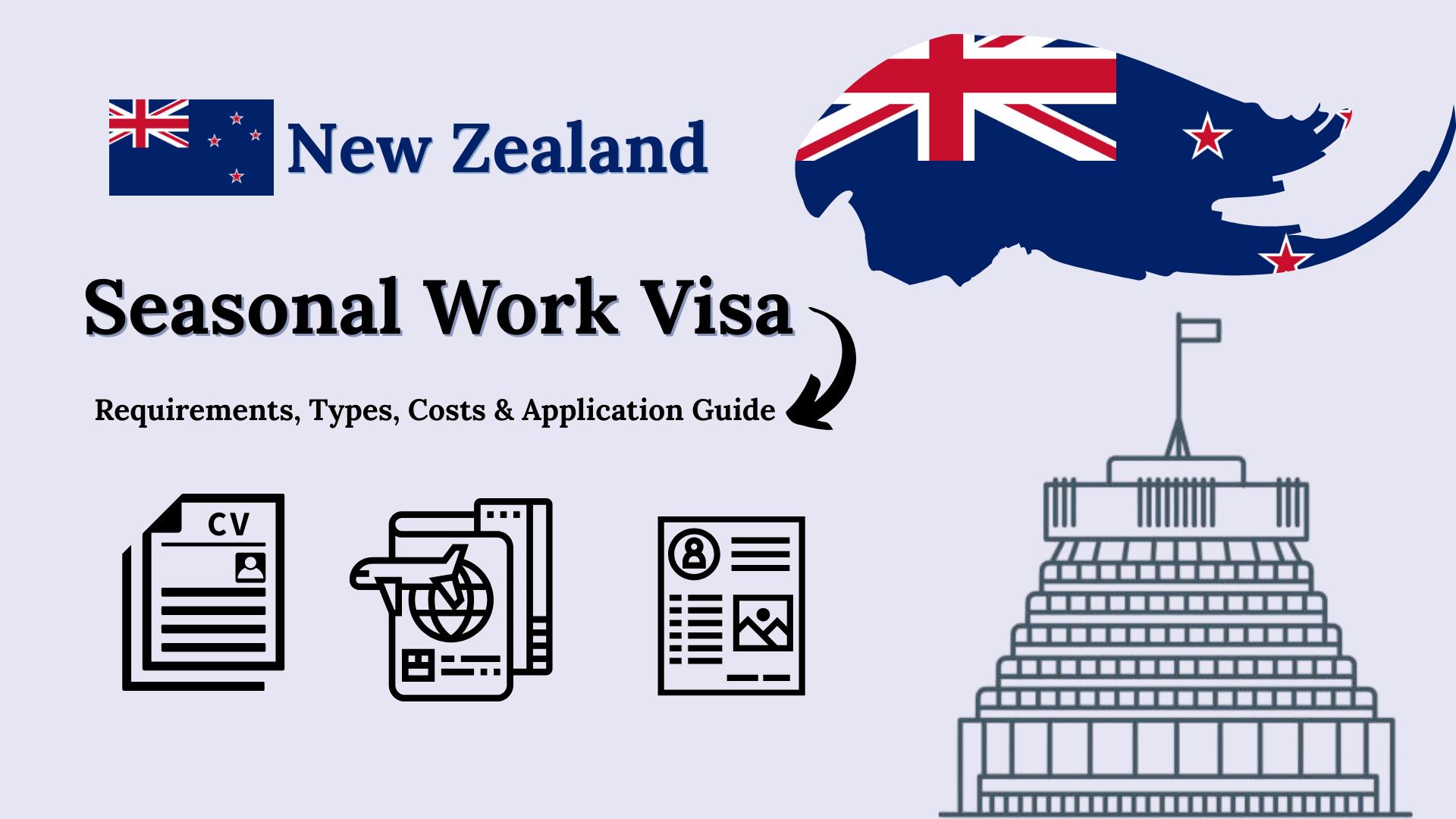Canada Seeks Powers to Cancel Visas Amid Fraud Concerns from India, Bangladesh. The Canadian government is seeking new powers to cancel or suspend large numbers of visas, raising global attention over the move. While officials publicly describe the proposal as a precaution for emergencies like wars or pandemics, internal documents reveal that the real motivation may involve growing visa-fraud concerns from India and Bangladesh.
Canada Seeks Powers to Cancel Visas Amid Fraud Concerns from India, Bangladesh
- The new proposal falls under Bill C-12, part of Canada’s latest border and immigration reform.
- Internal documents show that the Immigration Department and Border Services Agency are collaborating with U.S. partners to detect and cancel fraudulent visitor visas.
- India and Bangladesh were described internally as “country-specific challenges.”
- Immigration Minister Lena Diab publicly stated the move is mainly for emergencies like pandemics or wars, without naming any specific country.
- The number of asylum claims from Indian nationals jumped from fewer than 500 a month in May 2023 to nearly 2,000 by July 2024.
- Processing times for temporary resident visas from India increased from 30 days in mid-2023 to 54 days in mid-2024, while approvals dropped from over 63,000 in January 2024 to around 48,000 in June 2024.
What Is Bill C-12?
Bill C-12 is a proposed immigration reform bill granting the government the authority to:
- Cancel or suspend large groups of visas, study permits, or work permits if deemed necessary for public interest.
- Use these powers in times of pandemics, conflicts, or country-specific security challenges.
- Allow such decisions to be approved by the Governor in Council and published officially to ensure transparency.
Essentially, Bill C-12 would give the government flexibility to act quickly in response to perceived immigration risks or fraudulent trends.
Why Is Canada Pursuing These Powers?
Canada’s move appears to be driven by multiple factors:
- Increase in visa fraud cases – Officials have reported a significant rise in fraudulent or misrepresented applications, especially from India and Bangladesh.
- Asylum surge – A growing number of temporary visa holders, particularly Indian nationals, have filed asylum claims in Canada, causing concern for border authorities.
- Processing delays – Due to additional verification, visa processing times have nearly doubled over a year.
- Security and system integrity – Canada aims to strengthen screening mechanisms and prevent non-genuine visitors from abusing temporary visa programs.
Impact on Applicants from India and Bangladesh
The proposal may have several implications for applicants:
- Stricter screening: Applications from high-risk regions may face tougher scrutiny and longer verification procedures.
- Possible mass cancellations: If the bill is approved, entire categories of visas could be revoked even for compliant holders.
- Student and visitor challenges: Rejection rates for Indian student visas have risen sharply, with institutions reporting noticeable declines in enrollment.
- Diplomatic tensions: The policy could further strain relations with India and Bangladesh, two key contributors to Canada’s student and labor markets.
- Fairness concerns: Critics worry the government could apply these powers broadly without offering individuals a chance to appeal or justify their cases.
Statistical Overview
| Category | 2023 | 2024 | Change |
|---|---|---|---|
| Asylum claims (India) | ~500/month | ~2,000/month | ↑ +300% |
| Visa processing time (India) | 30 days | 54 days | ↑ +80% |
| Visa approvals | 63,000 | 48,000 | ↓ −24% |
| Indian student rejection rate | 32% | 74% | ↑ +42% |
Possible Effects on Higher Education and Employment
Canada has long relied on international students, particularly from India, to sustain its higher-education economy. If Bill C-12 becomes law:
- Universities could see declining international enrollments due to fear of cancellations.
- Employers may hesitate to sponsor foreign workers from countries perceived as high-risk.
- Students and professionals may begin seeking opportunities in other destinations such as the UK or Australia.
This policy shift may also signal a broader tightening of Canada’s immigration framework, prioritizing border security over international recruitment.
How Applicants Can Protect Their Applications
To avoid rejection or cancellation risks, applicants should:
- Submit authentic and verifiable documents — especially academic credentials and bank statements.
- Avoid using unverified agents or consultants.
- Maintain clear travel and employment histories to prove genuine intent.
- Regularly monitor visa updates on the official immigration website.
- Keep backup plans for study or employment in alternative destinations.
Government Clarifications
Canadian authorities maintain that:
- The new powers are not designed to target any specific nationality.
- Every visa decision will continue to follow due legal procedures.
- Fraud prevention measures are in line with Canada’s long-standing policy of maintaining fair and secure immigration systems.
Criticism and Public Debate
Human-rights and migration advocacy groups have expressed concerns that:
- Bill C-12 might allow mass visa revocations without individual due process.
- Targeting specific countries indirectly could undermine Canada’s image as a fair and inclusive destination.
- The move may discourage skilled migration from developing nations, impacting sectors like healthcare, technology, and academia.
Despite these criticisms, government supporters argue that modern immigration systems must be equipped to combat large-scale document fraud and prevent abuse of temporary programs.
FAQs
Q1. What is Bill C-12?
Bill C-12 is a proposed law that gives Canada the power to cancel or suspend large groups of visas during emergencies or in response to fraud and security concerns.
Q2. Does this target India or Bangladesh?
Officially, the government says no. However, internal reports mention India and Bangladesh as key countries with rising fraudulent applications.
Q3. Will current visa holders be affected?
If passed, the law could apply to both new and existing visas. Visa holders should keep their documentation updated and ensure full compliance.
Q4. What can students and workers do now?
Provide only genuine documents, verify institutional authenticity, and keep communication records with authorized visa centers.
Conclusion
Canada’s push for new mass visa-cancellation powers under Bill C-12 shows growing concern over immigration fraud and system integrity. While the government presents this move as an emergency safeguard, its focus on India and Bangladesh highlights the rising scrutiny faced by applicants from these regions.
For students, workers, and families planning to travel to Canada, transparency and compliance will be key. As immigration rules tighten, ensuring authenticity in every docume

















